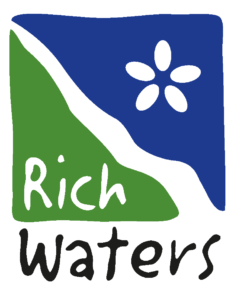Preface
This master thesis constitutes the end of my studies at the master program Soil and Water Management at the Swedish University of Agricultural Sciences. The 2 years spent in the program has deepened my understanding of the complex interactions found in nature. It has also furthered my passion for water management and environmental protection.
Several persons have contributed to the completion of this thesis. First, I would like to thank my supervisor Sara Bergek for her valuable input and support throughout the entire master thesis period. Furthermore, I would like to thank everyone involved in the Life IP Rich Waters project for appreciated insights and help along the way. Finally, I want to say thank you to my family and friends for supporting me along the way.
Emelie Möllersten, 28 June 2018
Summary
Freshwater ecosystem services are the benefits that humans gain from rivers and lakes in our surrounding environment. These services include for example drinking water, food, biological diversity, climate regulation, water for irrigation, and recreation, and are all very important to human life and well-being. The services that freshwater ecosystems provide are currently threatened by both human activities and climate change.
Climate change will lead to more extreme weather events and is already causing higher temperatures, droughts, intensified rainfall, and more frequent flooding. These changes could impact freshwater ecosystems and the services that they provide us with. To know how to best protect these ecosystem services, it is essential to find indicators and methods that can tell us if and why an ecosystem service is threatened.
The purpose of this master thesis was to investigate what indicators and methods that could be used to assess ecosystem services status and change of status related to climate change in terms of flooding. First a literature review was made where previous research was searched for information. The review resulted in a list of indicators that could be used for assessing ecosystem services status. The review also gave a better understanding of how climate change could affect freshwater ecosystem services status. Climate change is likely to impact many of the services that humans rely on, for example drinking water and biological diversity are often referred to as threatened.
The second part of this master thesis was a case study of the river Arbogaån located in mid-Sweden. This work was related to one of the sub-actions within LIFE IP Rich Waters, an EU funded project that started in Sweden 2017 with the purpose of improving water management in Sweden. The sub-action studies ecosystem services and impacts of climate change. In this project an initial method was developed for how to assess flooding impacts on ecosystem services. The method was tested on six ecosystem services that within the LIFE IP project had been assessed as being of high importance to humans in river Arbogaån, but also under high threat from climate change. They were: drinking water, biological diversity, water for irrigation and industry, flood control, regulation of eutrophication, and habitat. The assessment indicated that flooding could have serious consequences on services that are important for human societies. It was estimated that flooding has a negative impact on biological diversity, drinking water, and habitat.


